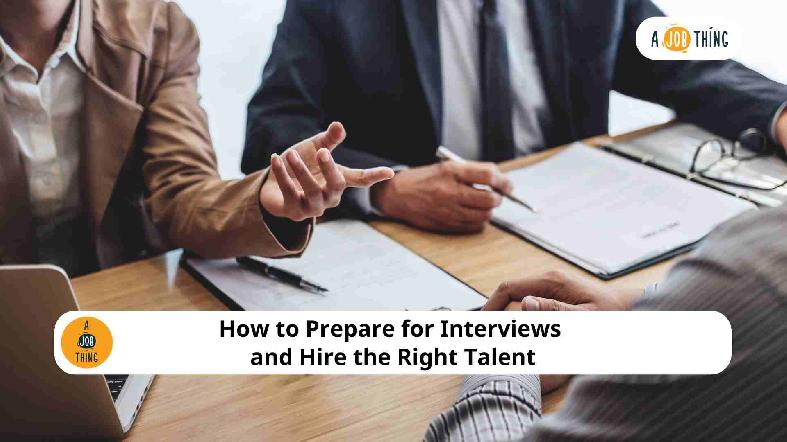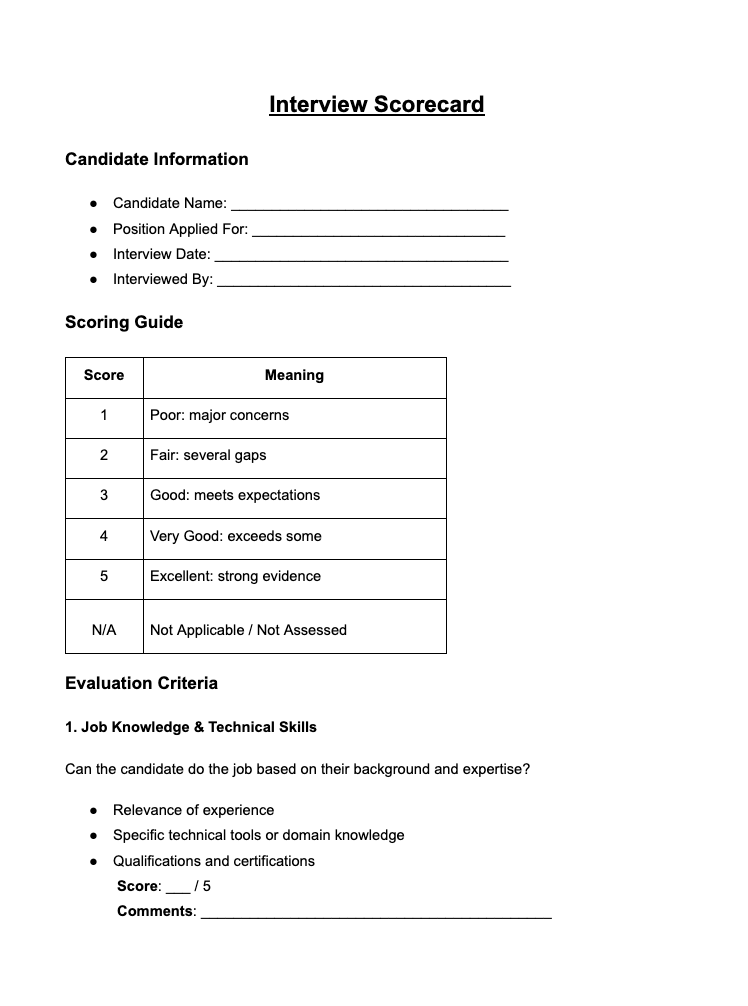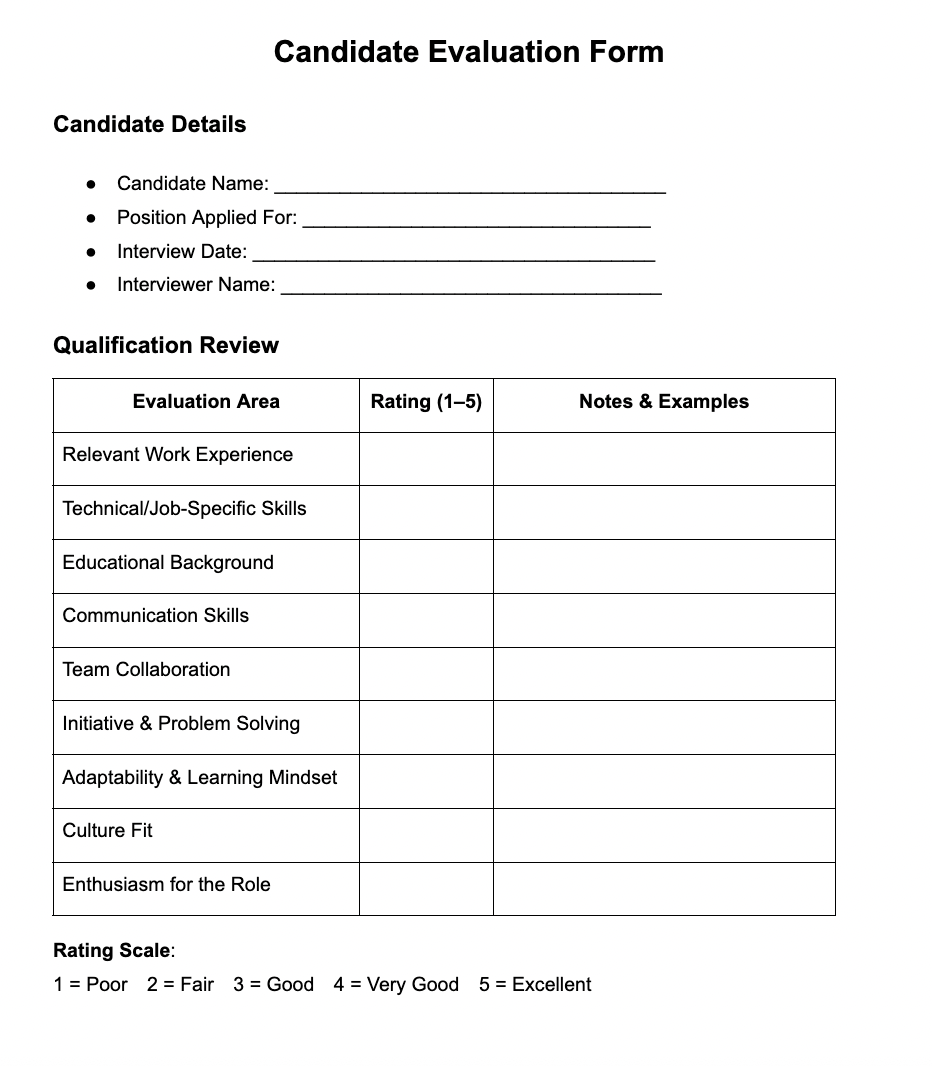
How to Prepare for Interviews and Hire the Right Talent
Are You Hiring?
Find candidates in 72 Hours with 5+ million talents in Maukerja Malaysia & Ricebowl using Job Ads.
Hire NowSelecting the right candidate often hinges on how thoroughly you prepare for an interview.
For employers or HR specialists in Malaysia, the interview process is focused on creating a structured, equitable, and efficient method for identifying the best fit for the position.
This guide will lead you through each phase, from organizing the interview to following up once it's completed. Regardless of whether you’re recruiting for a junior executive or a senior manager, these strategies will assist you in making smarter hiring decisions.
Pre-Interview Preparation Steps
Good interviews begin long before the actual meeting.
The first step is to revisit the job description. It should clearly define the role, responsibilities, and skills required.
Break these into two groups: essential and desirable qualifications. For example, a digital marketing executive might need experience with SEO tools (essential) and copywriting skills (desirable).
Next, decide on the most suitable interview format, whether it's in-person, phone, or video.
This decision can depend on the seniority of the role, the availability of the candidate, or even your internal capacity.
Set interview goals upfront. Are you testing problem-solving ability, culture fit, or leadership potential? When everyone knows what the interview is trying to achieve, it becomes easier to assess candidates in a fair and structured way.
Also, prepare necessary logistics: time slots, interviewer availability, meeting links, and even technical checks for online sessions. Don’t overlook these basic arrangements. They affect the candidate experience.
Preparing Interview Questions
When it comes to interview questions, using different types can help you better understand each candidate.
Behavioral questions help you learn how someone handled things in the past. For example, you might ask, "Tell me about a time you handled a difficult client" to see how they manage conflict or stress.
Situational questions focus on how someone would deal with a possible future scenario, like, "What would you do if you missed a deadline by one day?"
Technical questions test role-specific skills, such as asking a marketer, "Can you walk us through how you build a marketing campaign from scratch?"
You can also ask questions that reveal a candidate’s values and cultural fit. For example:
-
"What kind of team environment helps you do your best work?"
-
"Tell us about a time you disagreed with a colleague. How did you handle it?"
-
"Describe your ideal manager or supervisor."
These questions give you a fuller picture of how a candidate communicates, collaborates, and fits into your company culture.
You might notice if someone leans more toward independent work or enjoys team-based projects. That helps you assess if they’re right for your specific environment.
Be careful not to cross any legal lines. Under Malaysian labor law, avoid asking about personal matters like age, religion, marital status, or future family plans. These are not only inappropriate, they can expose your company to legal risks.
Coordinating with the Interview Panel
Interviews work best when everyone is on the same page. Decide who should be on the panel. This could include the hiring manager, HR representative, or a team lead from the relevant department.
Share the job description, candidate CVs, and scoring criteria with all panel members ahead of time. Agree on who will focus on which aspect, like one panelist evaluating leadership, another assessing technical knowledge.
Having a structure in place avoids duplicated questions and keeps the conversation balanced. After all, a good candidate experience also comes from a well-prepared panel.
Screening Candidate Profiles Before the Interview
Start by scanning resumes for basic qualifications: education, work experience, and specific skills. Then, dig deeper into patterns and context.
Here are some practical tips:
-
Check if their experience aligns with the job requirements. For example, if you’re hiring for a logistics role and the candidate only has retail experience, see if they’ve handled inventory or managed supply chain tasks.
-
Look for steady career progression. A history of regular promotions or expanding responsibilities can show growth.
-
Review how tailored their resume is. If it's too generic or doesn't match your job post, it may show a lack of effort or interest.
Now, here are some red flags to watch for:
-
Frequent job changes without explanation. This may indicate instability. It’s not always a bad thing, but it’s worth discussing during the interview.
-
Long employment gaps. These aren’t always negatives, but unexplained ones should be clarified. Candidates might have taken time off for valid reasons such as caregiving or studying.
-
Overuse of buzzwords with little substance. Phrases like “strategic thinker” or “results-driven” should be backed up with actual examples. If they’re missing, probe further.
-
Inconsistent career path. If the resume shows unrelated roles that don’t connect logically, ask how the transitions happened. Some candidates switch industries successfully, but you’ll want to understand their motivation.
-
Typos or formatting issues. Minor mistakes can signal poor attention to detail, especially for roles that require precision.
By reviewing resumes with these points in mind, you can shortlist candidates who are both qualified and genuinely interested in your role. This makes your interview time more effective and focused.
During the Interview
Begin by welcoming the candidate and explaining how the session will flow. This small step can ease nerves and create a more natural conversation.
Structure helps. A clear format keeps things fair and consistent:
-
Short intro
-
Background and experience
-
Job-related or technical discussion
-
Questions about work style or culture fit
-
Candidate Q&A and wrap-up
Use a scorecard to track responses. Rate communication, problem-solving, attitude, and specific skills. This gives you a more objective comparison later.
Taking notes during the session is essential. It prevents confusion when you're comparing multiple candidates and helps you make decisions based on facts, not impressions.
Post-Interview Process
Once all interviews are complete, organise a debrief. Let each panel member share their notes. Try to avoid groupthink by encouraging honest input before settling on a preferred candidate.
Weigh each candidate’s strengths and weaknesses using your scorecards and observations. This step should focus on alignment with the job, not just personality or likability.
Communicate promptly and professionally, although the result may extend to the offer stage or rejection. For rejected candidates, a short and polite email helps maintain your reputation and keeps future opportunities open.
Tools and Templates
To make your interview process smoother, consider using these templates:
Interview Scorecard

Candidate Evaluation Form

Interview Checklist for HR and Hiring Managers
.png)
FAQs
What are the best questions to ask in a job interview?
Ask questions that test both skills and attitude. For example, "Describe a challenge you faced and how you solved it."
How long should an interview last?
Usually, 30–45 minutes is enough for a first round. Deeper rounds might take 60–90 minutes.
What should I avoid asking a candidate in Malaysia?
Avoid questions about age, gender, religion, race, marital status, or pregnancy plans.
How to evaluate soft skills in an interview?
Look at how they explain their experiences, respond to conflict, or describe teamwork. Soft skills often come through in their stories.
How many interview rounds are ideal?
Two to three rounds work well for most roles. More than that may cause candidate drop-off.
Can I reject a candidate without giving a reason?
Yes, but it’s better to close the loop politely. You don’t have to give full details, but a short thank-you email is good practice.
How do I improve my interview process for better hires?
Review your job descriptions regularly, prepare targeted questions, and use a structured evaluation system.
Are You Looking for New Staffs?
Start your hiring journey with AJobThing today!
Post your job ads, connect with top talents on multiple platform like Maukerja, Ricebowl, and Epicareer with our easy-to-use platform.
Read More:
- Cover Letter Examples Employers Should Know (With Tips to Spot the Best Ones)
- Step-by-Step Guide to Writing a Great Job Description (Free Templates)
- What Does an HR Officer Do? Responsibility, Key Skills, Importance
- How to Handle Employees Who Abscond from Work in Malaysia
- Who Can Look at Employee Personnel Files?
- Why a Clear Signing Off From Work Policy Matters
- What is Work Life Balance? Benefits, Factors, and How to
- 75 Company Gift Ideas for Employee Resignation
- 150+ Nama Nama Company Yang Best to Inspire Your Business Name
- Best Answers for 'Why Should We Hire You' – A Guide for Employers
- 12 Employment Types You Need to Know: A Guide for Employers
- What is Precarious Employment? Risks, Challenges, and Solution

